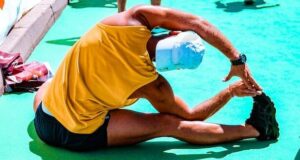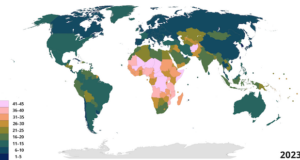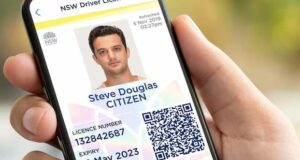Most of us know about “circadian rhythms” and the “sleep cycle.” We have a basic idea of REM, and know it’s not best to wake up during a “deep sleep.” But all of this was academic. It’s not like you can watch yourself sleep. Alarm clocks have always been set for a certain time, and that time has nothing to do with how deeply you’re snoozing. But how do you get a good night’s rest?
A wave of technology is helping everyday people understand their unconscious lives. Thanks to sophisticated apps, watches, and even mattresses, you can independently adjust the way your body behaves at night.
There is an entire branch of medical science, called polysomnography, that helps diagnose sleep disorders, and it’s hard to say whether a free app can rival a specialist’s advice. As researchers at the University of Washington’s report entitled, “Consumer Sleep Technologies: A Review of the Landscape” put it: “These technologies have the potential to both improve and impair collective and individual sleep health depending on the method of implementation.” In other words, the jury is still out.
Still, many people believe that the right technology can positively affect your rest patterns, especially when used in a thoughtful and methodical way. Here’s some tech including apps, trackers, gadgets and special smart mattresses that may help you catch more Z’s.
Sleep Apps
Sleep apps are handy because you can download a sleep app onto your smartphone. No need for extra hardware. Sleep apps use your phone’s “accelerometer” to figure out what your body is doing. You place the phone near your body in bed. The phone will detect when you toss and turn, and it will make an educated guess about what sleep stage you’re in.
How does it work? The accelerometer is a device inside your phone that detects which way it’s oriented. Ever wonder how your phone knows which way is up? Or how that digital compass can point west? That’s all your accelerometer, and it can also determine whether your body is moving around. The app gathers data based on your movements and gives you a report at the end of each cycle.
Perhaps the most helpful feature is the alarm clock. Just set a window of time that you want to wake up, and the app will determine when you’ve entered your “lightest” sleep. Unlike an old radio clock, the alarm tones are gentle and soothing, drawing you effortlessly from your dreams and rest.
A popular option is the Sleep Cycle Alarm Clock, because of its sensitive movement detection, its range of low-key alarms, and its easy-to-read reports. Click here for more details and links to it in the Apple App or Google Play store.
Another is the Sleep Time app, which uses a similar cycle-based alarm. Sleep Time also has a catalog of “soundscapes,” which replicate the noise of a natural environment, like a beach or a rainforest, helping you to fall asleep as well as wake up. For direct links for Sleep Time in the Apple and Google store, click here for both.
Soundscapes can be helpful for people with insomnia. Some people live in noisy buildings or neighborhoods, and they need an auditory alternative to all those honking horns and slamming doors. The Relax Melodies app offers a range of subtle sounds, such as music, ambient noise, or “meditation sessions.” All of these soundscapes are designed to put the listener in a restful mood and even encourage sleep. Click here to check it out.
Fitness Watches
Sign up for any race, and you’ll find hundreds of runners synchronizing their fitness watches. But they’re not just for athletes: Millions of regular people are investing in high-tech watches to help them track their steps, monitor their heart rates, and improve their resting patterns. Even the cheapest models, like Letscom Activity Tracker and Wesoo K1 Fitness Watch, have built-in sleep monitors.
There are lots of advantages to fitness watches: A wristwatch feels very natural on your body, so you don’t have to share a bed with your phone. If you’re active, you’re already downloading your data so you can add your rest report along with miles run and calories burned.
The market is saturated in fitness watches, but the two dominant brands happen to make sleep tracking easy: Fitbit is still the best-known name, thanks to its early development and sleek designs. Like a phone app or high-quality sleep monitor, Fitbit detects your movements while you sleep.
Like the Sleep Cycle app, Fitbit figures out your particular “sleep stages.” When you’ve gathered enough data, Fitbit provides “insights,” comparing your sleep patterns to other people of your age and gender.
Curiously, Apple Watch doesn’t have a sleep-tracker built into the device, but you can download the app of your choice from the iTunes store.
Sleep Trackers
Sleep trackers are everywhere, and they come in a range of designs: Some are panels that you stick under your bed. Others are bracelets, sculptures, and even a glowing sphere. Unlike your phone, the trackers are specifically designed to study your sleep patterns, and as unobtrusively as possible.
Each device uses “actigraphy” to document your physical movements during the night. For example, the Beddit Sleep Monitor is a long white strap that you can fasten to your bedsheets. You barely notice its presence, and it senses when you’re shifting or rolling over. Many trackers also can also record your heart rate and whether you snore.
Smart Beds
The idea of a smart bed may seem like science fiction. If you’re willing to spend the extra money, these high-tech mattresses can change their firmness based on your physical needs.
The leading brand is Sleep Number whose mattresses are famous for changing their firmness. Sleep Number uses a matrix of smaller pockets, which inflate and deflate as the night wears on. These mattresses can isolate certain parts of your body, providing a firm surface for your shoulders and a softer surface for your legs, or maybe vice versa.
One of the most significant advancements is the elevating mattress, which can be a life-saver for people with severe snoring and even sleep apnea. When the bed detects snoring, it will rise automatically toward the top, shifting the sleeper’s head. When you download your data, Sleep Number will even give you a score for how well you slept.
The sleep tracker by Eight Sleep is a cover that you pull over an entire mattress. The cover has a warming feature, which can be set on a timer. The sleep tracker also has a smart alarm system, and you can use the Eight Sleep app to compare sleep patterns and recent exercise.
Finally, you can even connect your Eight Sleep mattress to your Amazon Echo. Feeling a little chilly? Just tell Alexa to warm up your mattress, and the temperature of your cover will rise. Welcome to the future!
How else can you use tech to better your body, mind, and spirit? Be sure to listen or download my podcasts, or click here to find it on your local radio station. You can listen to the Kim Komando Show on your phone, tablet or computer. From buying advice to digital life issues, click here for my free podcasts.
Kim Komando hosts the nation’s largest talk radio show about consumer electronics, the Internet and digital lifestyles. Read her columns and newsletters at komando.com
 Metro Voice News Celebrating Faith, Family & Community
Metro Voice News Celebrating Faith, Family & Community 








